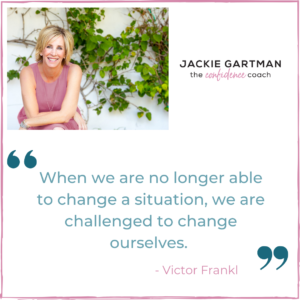
My daughter is as open as the sky. She thrives on new experiences, whether it’s trying some exotic food like fried grasshoppers or traveling to remote parts of the world without knowing a soul and volunteering her time as an EMT. She will take a flier at almost anything as long as it doesn’t kill her.
I used to be just like her.
It’s not uncommon, as we age, to become more fearful. The culprit is likely our very own brain, or, at least, a very primitive and animalistic part of it formally called the amygdala and informally called the reptilian brain. Its origin is in our evolution as a species, and its job is to make sure we stay alive. It gets triggered when presented with circumstances it perceives as threatening. In nature, that might look like a bear protecting its cubs from a predator. On the freeway, it might look like road rage when someone cuts us off in traffic.
This reptilian part of our brain may be primitive, but it’s powerful, and it can overtake the more rational, higher‐functioning part of our brain before we even realize it. When this happens, we may not feel inclined to try anything new ever again, because change is uncomfortable and inherently unsafe to the lizard within. It’s unsurprising that studies support that we fear unknown outcomes far more than sucky, but known, ones. The devil we know, and all that.
There are other biological reasons for us to become more fearful as we age. Most of us experience a rise in cortisol as we grow older, and high cortisol is closely associated with feeling stressed out, worried, and anxious. It’s what’s in full flow during an adrenalized, fight‐or‐flight response.
Fear isn’t just instinctive, it’s also acquired. For me, the older I get, the more I realize how fragile life is. I’m watching as family members, friends, even celebrities I think of as contemporaries are diagnosed with cancer, or have heart attacks, or simply, suddenly, die. It’s normal to be more aware of our mortality the closer we get to the end of the average human lifespan. But hyper‐awareness can cause us to say “no” to risks, to anything that might affect the quality or longevity of our lives.
Or maybe I’ve just gotten complacent and lazy.
Whether biology, learned behavior, or sheer inertia, being in a rut can be stressful in and of itself — not to mention boring. If you’re like me, you may find yourself living the same routine day in and day out, taking the same route to work every day, hiking the same trail, eating the same foods, reading the same genre of books – you get the drift.
In 2014, my husband, kids, and I wrote down our top 5 goals and dropped the pieces of paper in a jar oh‐so‐imaginatively labeled, “Goals”. (Did I mention I was bored and in a rut?) On January 1, 2016, we each pulled our goals out of the jar and read them out loud, checking them off along the way.
Or in my case, not checking them off. I completed just 2 out of 5. Eating fewer chocolate chip cookies every night was one of them. I was proud of that until I saw the others that I didn’t achieve, like taking singing lessons. This saddened me. Was this just a futile exercise, or was I ever going to get serious about taking on something new?
So I chose to implement the 10-Year Rule.
The 10-Year Rule is a simple algorithm for determining what you should do when you’re seeking out adventure. Basically, whenever you’re presented with a choice, ask yourself which option you think you would prefer to have taken in ten years (hat tip here, to The Art of Manliness).
So this year, I’ve made a commitment to doing things that scare my poor little lizard but that are in alignment with my own 10-Year Rule guidance. I genuinely believe that people who live their life as deeply, as genuinely, and as fully as possible actually fear less. And I intend to become one of them.
When you can summon the courage to do things that are unknown, or have an uncertain or unpredictable outcome, this is what can happen:
- You open up more possibilities for more J.O.Y. in your life.
- You dial up your self‐confidence. The more you do that lights you up, the stronger and more resilient you become.
- Boredom, predictability, and complacency gets replaced with vitality. Doing something new makes you feel ALIVE!
- You get to grow and evolve from whatever action you’re taking even if you’re not very good at it initially. Either way, you will likely transcend what you thought was possible for yourself.
- You won’t live with the pain of regret. Can you learn to live with regret? Sure you can, but why would you want to?
So, I’m taking singing lessons and boy am I uncomfortable. You won’t be seeing me on The Voice but I can promise that you may just see a happier and more fulfilled Jackie.
And as my friend Bon Jovi sings in “It’s My Life”
It’s now or never
I ain’t gonna live forever
I just wanna live while I’m alive




